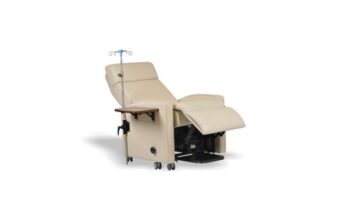Dementia is a challenging condition that affects memory, thinking, and behaviour. Caring for someone with dementia requires patience, empathy, and flexibility. This blog post explores ways to adapt care to meet the unique needs of dementia patients. By making simple changes, caregivers can improve the quality of life for their loved ones.
Dementia
Dementia is more than just memory loss. It involves a decline in cognitive abilities that interferes with daily life. Symptoms may include confusion, difficulty communicating, and personality changes. Each person with dementia is unique, so care plans must be personalised.
Creating a Safe Environment
Safety is a top priority for dementia patients. Simple modifications can make a home safer:
- Remove Clutter: Keep pathways clear to prevent falls.
- Install Handrails: Place handrails in hallways and bathrooms for support.
- Use Labels: Label drawers and doors to help with orientation.
- Secure Hazardous Items: Lock away sharp objects, medications, and cleaning supplies.
Establishing Routines
Routines provide a sense of stability and reduce anxiety for dementia patients. Consistent schedules for meals, medications, and activities help patients feel more secure. Here are some tips:
- Regular Mealtimes: Serve meals at the same time each day.
- Consistent Sleep Schedule: Encourage going to bed and waking up simultaneously.
- Daily Activities: Plan simple activities that the patient enjoys, like walking or listening to music.
Encouraging Communication
Effective communication is key in dementia care. Here are ways to improve communication:
- Speak Clearly: Use simple, clear sentences and maintain eye contact.
- Be Patient: Give the patient time to respond without rushing them.
- Use Non-Verbal Cues: Gestures, facial expressions, and touch can convey messages.
- Limit Distractions: Turn off the TV or radio when talking to the patient.
Promoting Physical Activity
Physical activity is beneficial for dementia patients. It improves mood, reduces anxiety, and supports overall health. Here are some activities:
- Walking: A daily walk can be refreshing and calming.
- Simple Exercises: Gentle stretching or chair exercises are safe options.
- Gardening: This can be a soothing and rewarding activity.
- Dancing: Listening to music and dancing can be enjoyable.
Stimulating the Mind
Mental stimulation helps slow cognitive decline. Engage patients in activities that challenge their minds:
- Puzzles and Games: Simple puzzles, word searches, or card games can be fun.
- Reading: Reading aloud or listening to audiobooks can be comforting.
- Arts and Crafts: Drawing, painting, or knitting can be therapeutic.
- Reminiscence Therapy: Looking at old photos and sharing memories can spark joy.
Providing Emotional Support
Emotional well-being is crucial for dementia patients. Show empathy and understanding:
- Listen Actively: Pay attention and validate their feelings.
- Offer Reassurance: Calmly reassure them if they feel confused or anxious.
- Be Present: Spend quality time with the patient to reduce feelings of isolation.
- Celebrate Small Wins: Acknowledge their efforts and successes.
Nutrition and Hydration
Proper nutrition and hydration are vital. Dementia patients may forget to eat or drink, so caregivers at care homes need to be vigilant:
- Balanced Diet: Provide nutritious meals with a variety of foods.
- Small Portions: Serve smaller, more frequent meals to encourage eating.
- Hydration: Ensure the patient drinks enough fluids throughout the day.
- Monitor Weight: Keep track of their weight to ensure they are eating enough.
Involving Family and Friends
Family and friends play an important role in dementia care. Involving them can provide additional support:
- Stay Connected: Encourage regular visits and phone calls.
- Share Responsibilities: Divide caregiving tasks among family members.
- Educate Loved Ones: Teach them about dementia and how to interact with the patient.
- Support Groups: Join support groups for caregivers to share experiences and advice.
Seeking Professional Help
Sometimes, professional help is necessary. Don’t hesitate to seek assistance from healthcare providers:
- Medical Care: Regular check-ups and medication management are important.
- Therapists: Occupational and speech therapists can provide specialised care.
- Day Programs: Adult day care programs offer social activities and respite for caregivers.
- Residential Care: A home like Chingford Care Home may be the best option in advanced stages.
Conclusion
Caring for a dementia patient is challenging, but with the right approach, it can be rewarding. By creating a safe environment, establishing routines, encouraging communication, promoting physical activity, stimulating the mind, providing emotional support, ensuring proper nutrition, involving family and friends, and seeking professional help, caregivers can make a significant difference in the lives of their loved ones.




